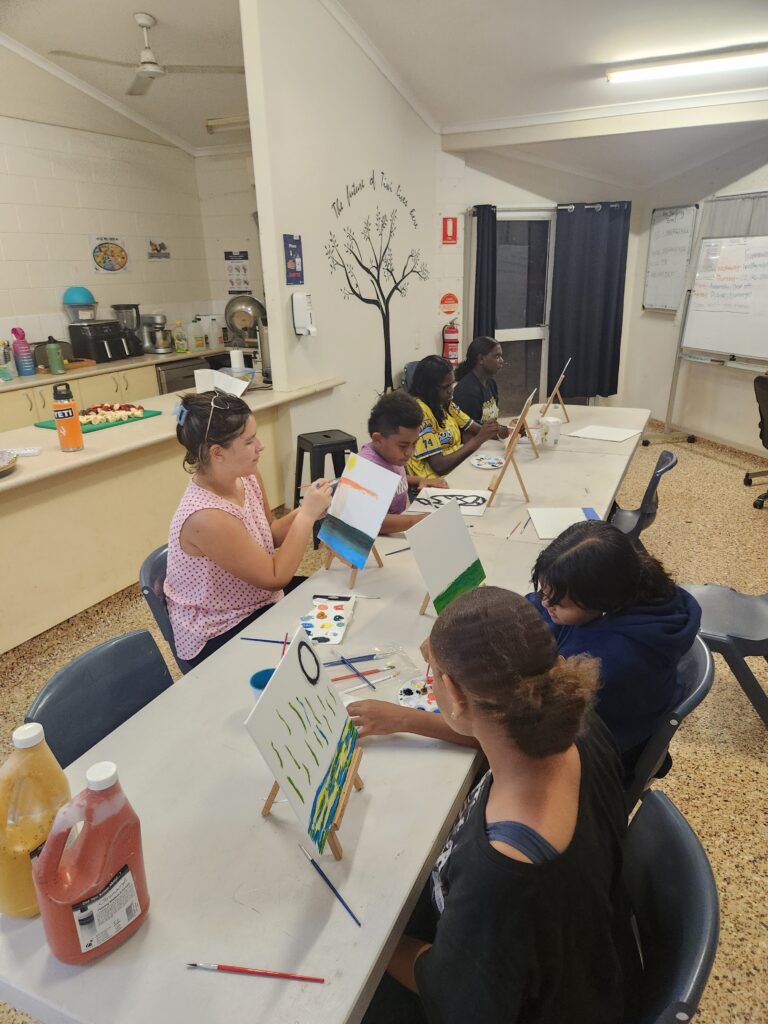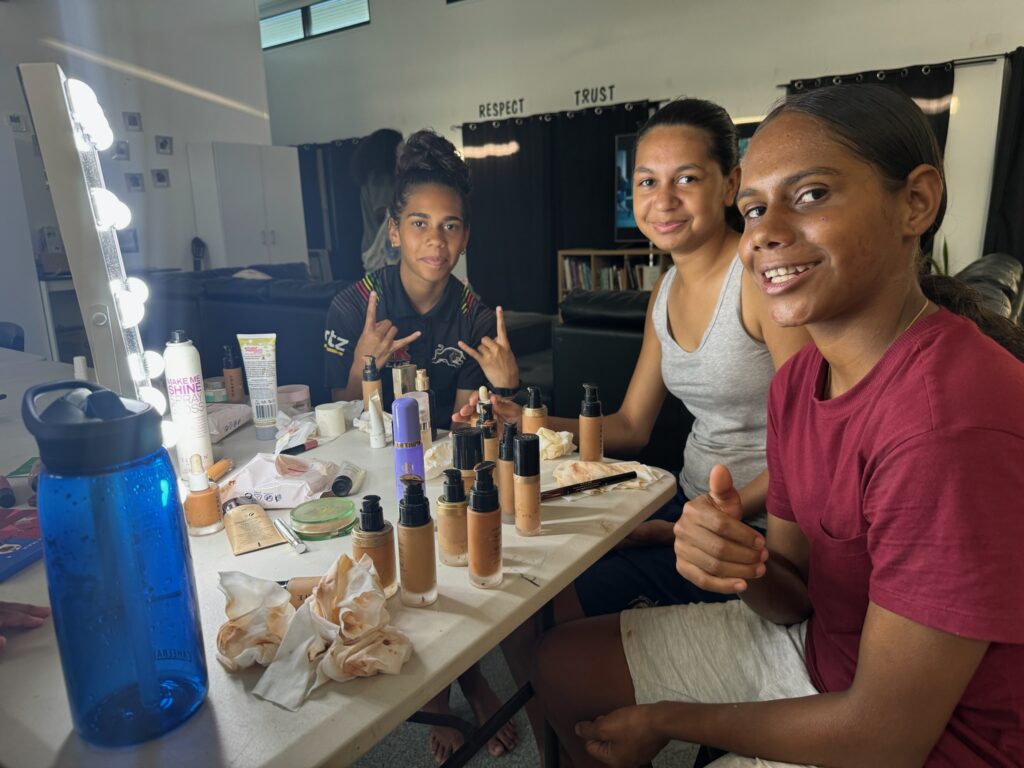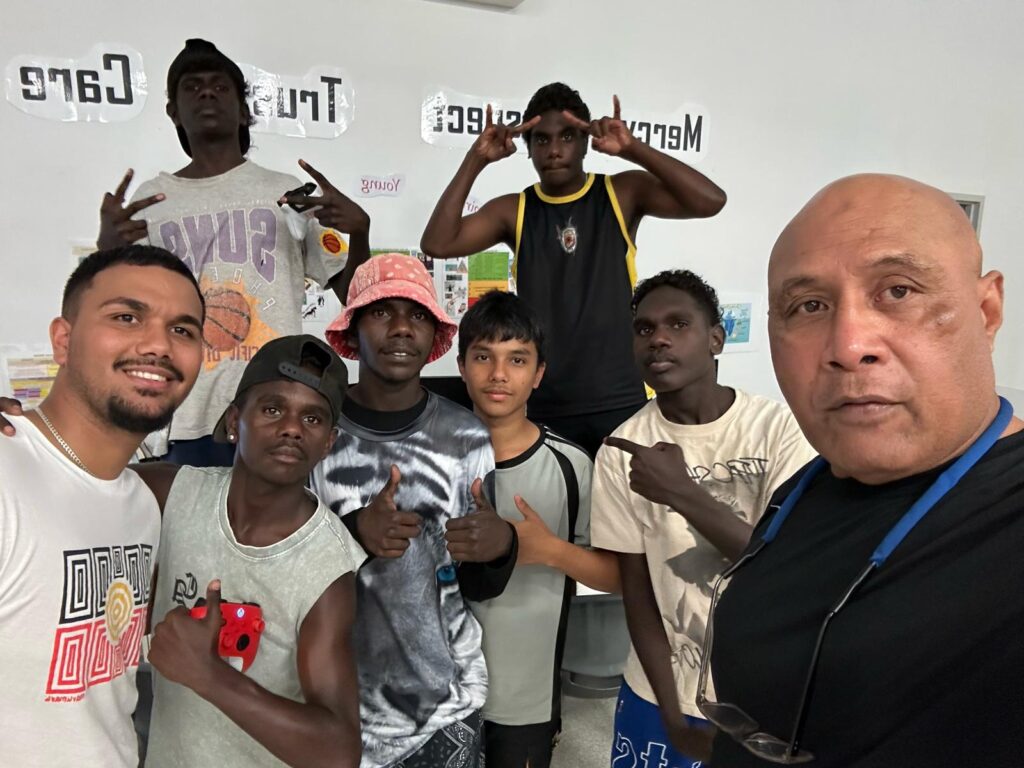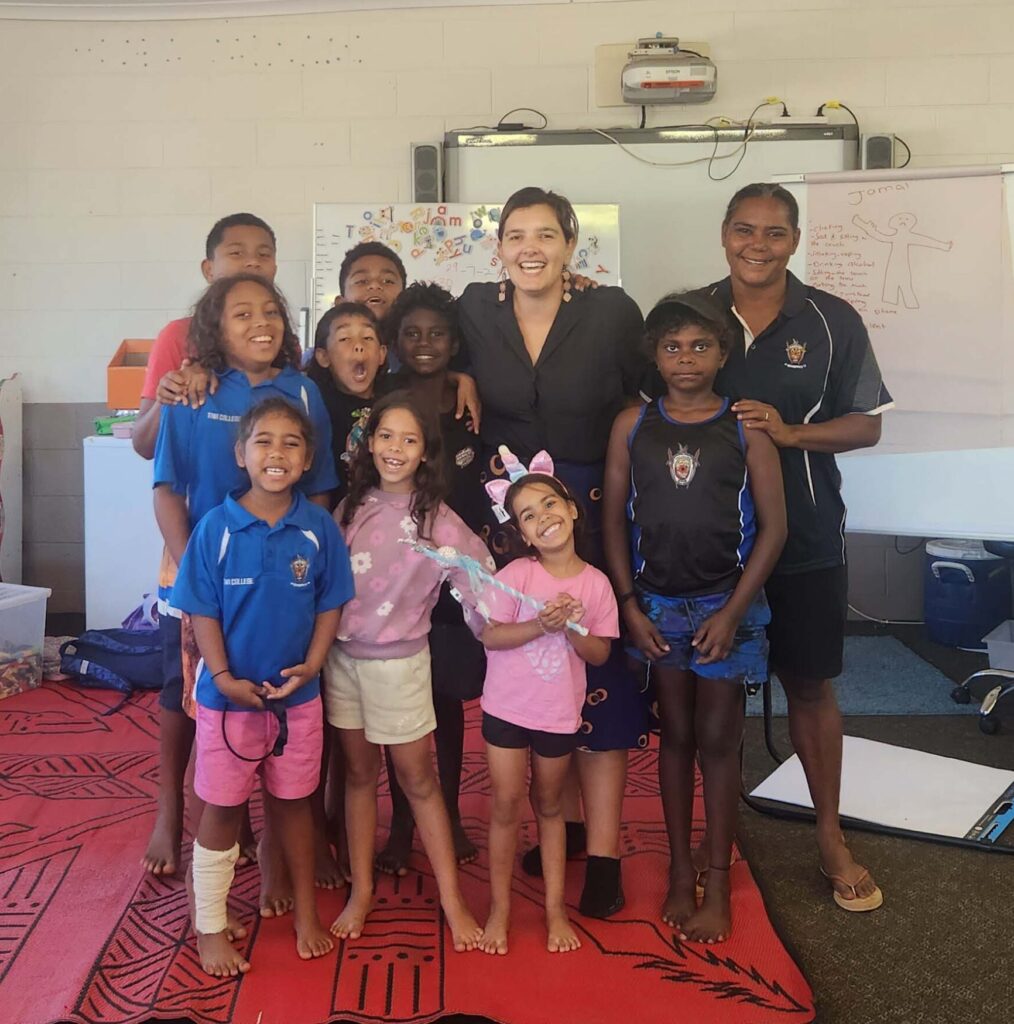
I have built safe relationships enabling me to work in the secondary school on Tiwi. I work alongside a Larrakia man (Ali) who has family connections to the Island. Our work is supported by the Traditional Owners on Tiwi. We take time to honour these relationships and we ensure that each session is paced appropriately.
My work on Tiwi used an adaption of a program called I Respect, with additional elements of SoSAFE to work with students from the High School. I Respect is a program designed to encourage young men to discuss healthy relationships and healthy manhood. This program aims to create a culture where young people discuss and define what healthy relationships are, and learn about consent, non-consent and coercion. I adapted the program for both young men and young women, and for cultural safety delivered the program to males and female students separately.
The project was delivered in Tiwi Islands Communities. Tiwi islands is 80km north of Darwin mainland, it compromises of three islands with three major communities within the islands. It is only possible to fly in or out of the islands for seven months of the year due to the wet season which makes driving between communities dangerous. Furthermore, men’s business happens twice a year, which means that women are not allowed to be on the road regardless of their role in community.
A lot of young people in the Tiwi’s can speak five languages, and English being people’s 4th or 5th language. The young people have called us the “Guwa/Wawa” people. Which translates to right way and wrong way relationship. We have gone with using Guwa and Wawa instead of using the terms consent and non-consent as this is language all Tiwi young people know and use amongst themselves.




There are a wide range of ways that DYS have used time to create safety:
We take huge amounts of fresh fruit over to the Island and makes fruit platters for each session and it is well received. We use this as an ice breaker for the first 20 minutes daily.
The Traditional Owners have asked us to make sure we attend Fridays as powerful conversations happen inside and outside of the classroom on this day. Traditional Owners are in the classroom as support when sessions are run and it is POWERFUL having their knowledge and understanding of the young people, the dynamics in the classroom and back story of each of the young ones.
On the last day that we were on Tiwi delivering the sessions we went out on country. The boys and girls groups moved around in the shallow water and talked and reflected on what they had learnt, with the Traditional Owners listening. This time was important for unstructured conversation and for the young people to ask more questions in a place where they felt completely comfortable and with unlimited time.
When I’m not in Tiwi, I have Zoom sessions fortnightly with the young people in each classroom, touching touch base for 20 or 30 minutes. I often wave at the students with my dog, or act silly and the students love it. The students ask when the “right way/wrong way relationship talks are happening again?”.
We took baskets of sensory toys and activities and the feedback from staff was amazing. The staff stated that their students never sit with content like the way they have been, and she believes it’s because the young people have their hands busy. As well as encouraging students to sit/stand/move
(whatever is comfortable) when talking about such heavy topics.
Having a male facilitator run the sexual assault, sexual harassment was crucial for the senior young males. One Traditional Owner has asked us to do this session every time we visit Tiwi, as he believes the students need to hear that information in particular. The Traditional Owner stated several times that session needs to happen every week, and asked for training so he can have those talks.
The junior cohort (year 7 – 9) have connected with the content a lot more than seniors. This could be that many of the senior girls were all in relationships and may be experiencing some level of violence.
The school are so open to learning/training around domestic and family violence and want to keep their students safe. We will include training for the staff of our program next time we go to Tiwi. Staff were excited by this.
Copyright © 2023 Darwin Youth Services.
Created by: Aurelza